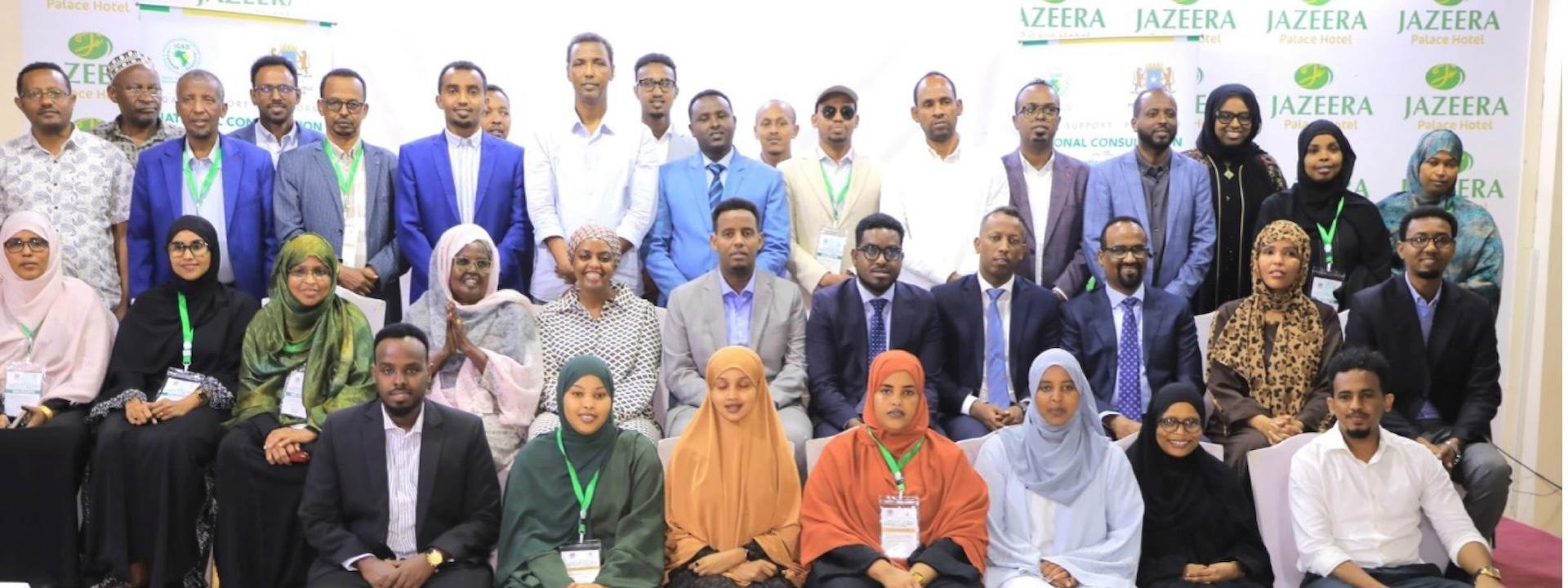February 3, 2025 (Mogadishu, Somalia): A two-day national consultation held in Mogadishu, under the auspices of the Intergovernmental Authority on Development (IGAD) in collaboration with the Federal Government of Somalia, has reaffirmed country’s commitment to enhancing the economic integration of refugees and internally displaced persons (IDPs). The consultation, part of the broader Kampala Declaration initiative, focused on strengthening public-private partnerships, expanding economic opportunities, and addressing key political and policy reforms to ensure long-term, sustainable solutions for displaced populations.
Speaking on behalf of IGAD Executive Secretary Dr Workneh Gebeyehu, Mr Mohamed Abdi Ahmed, IGAD Head of Mission in Somalia, commended the Somali government for its continued efforts towards refugee self-sufficiency. “Somalia has made significant strides in integrating refugees into its economic and social fabric. Regional collaboration remains vital in transforming policy commitments into tangible impact,” he emphasised.
The Commissioner of the National Commission for Refugees and IDPs (NCRI), Ahmed Hussein Elmi, highlighted Somalia’s progress in expanding access to education and healthcare for refugees. However, he urged greater resource mobilisation to strengthen their economic empowerment.
Somalia’s private sector is playing an increasingly pivotal role in this effort. Abdullahi Nur Osman, Executive Director of the Hormuud Salaam Foundation, underscored the importance of providing refugees with tools for self-reliance. “At the Hormuud Salaam Foundation, we believe in creating opportunities that drive lasting change. By offering land, vocational training, and employment opportunities, we are helping displaced families regain dignity and rebuild their lives,” he stated.
Across the IGAD region, displaced populations continue to face significant challenges, including limited access to essential services, food insecurity, and heightened vulnerability in makeshift settlements. Recognising these realities, Yemisrach Benalfew, Coordinator of IGAD’s Migration Policy Implementation Strengthening Project (SIMPI), stressed the need for embedding the Kampala Declaration into national legal frameworks.
“The Kampala Declaration must be reinforced through national legislation to provide the necessary legal foundation for effective implementation,” she emphasised. Ms Benalfew also highlighted the importance of predictable and sustained investments, ensuring commitments translate into real-world action. Furthermore, she advocated for the inclusion of refugees in policymaking, stating: “Policies that do not reflect refugee voices risk being detached from their lived realities, making it harder to develop solutions that truly address their needs.”
The consultation brought together government officials, private sector leaders, civil society representatives, and members of refugee communities to explore concrete, actionable solutions. The initiative, supported by the German government through GIZ, is part of IGAD’s broader efforts to monitor and advance regional commitments aimed at improving the livelihoods of displaced populations.
Since 2023, IGAD has been facilitating national consultations across its Member States—Djibouti, Ethiopia, Kenya, Somalia, Sudan, and Uganda—to drive forward the objectives of the Kampala Declaration and promote sustainable solutions for refugees and IDPs across the region.

